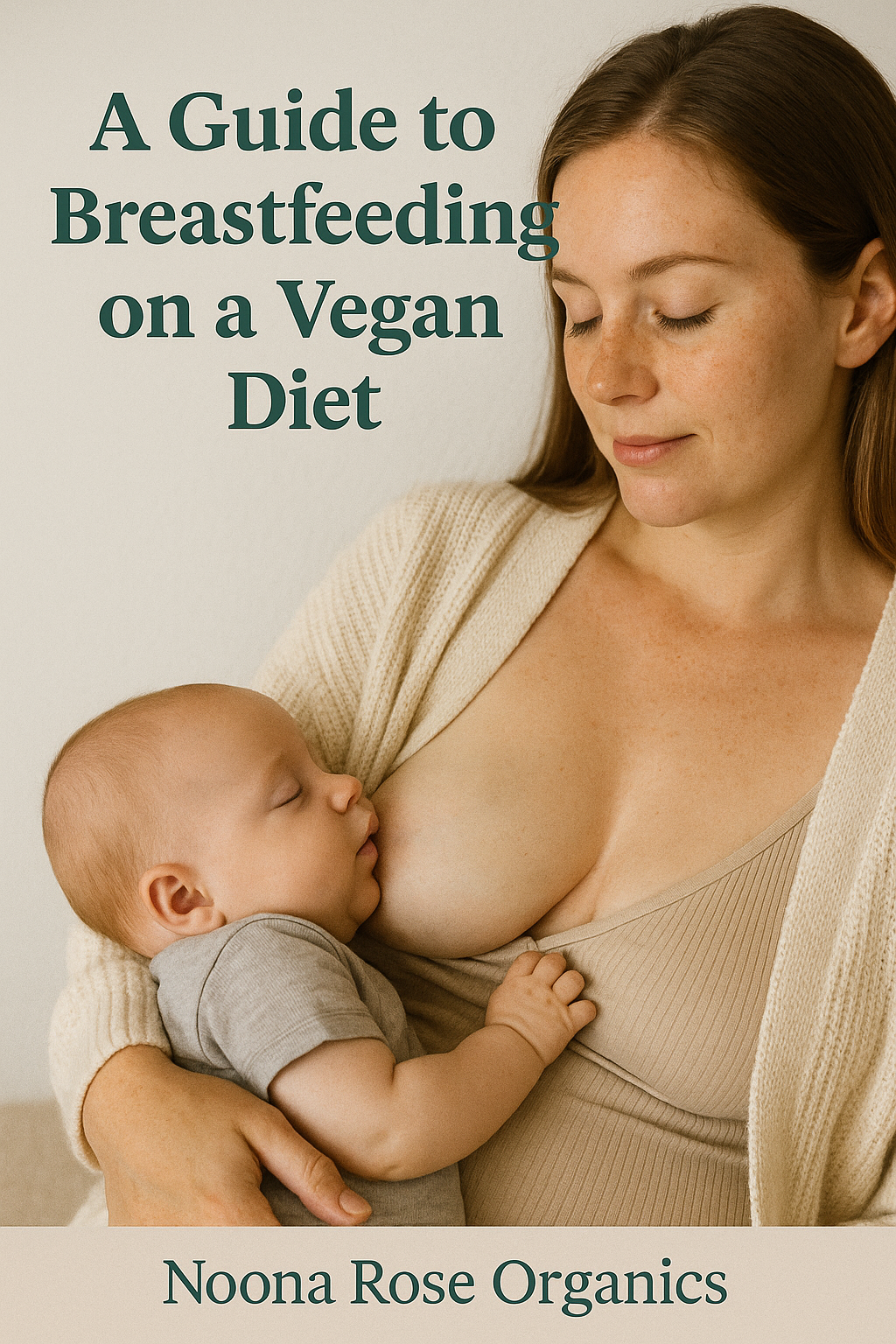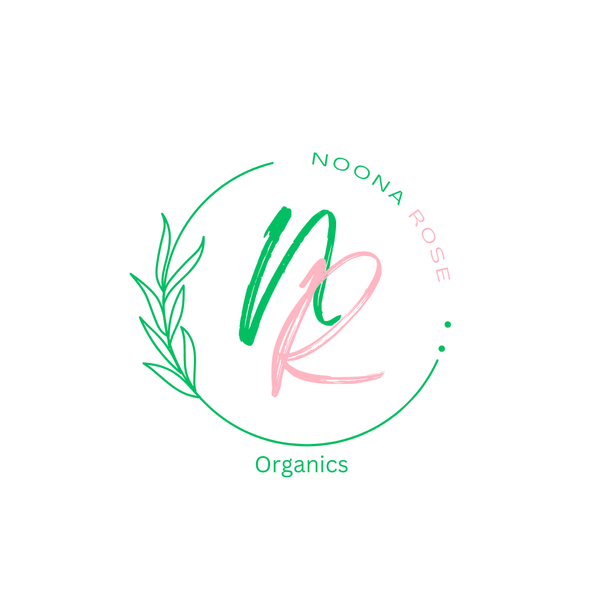
A Guide to Breastfeeding on a Vegan Diet
Share
Breastfeeding is one of the most nourishing gifts you can give your baby — and many mothers are now choosing to do it while following a vegan lifestyle. The good news? With careful planning, a vegan diet can provide all the nutrients both you and your baby need.
At Noona Rose Organics, we believe plant-based living is powerful, but it’s essential to understand how to keep yourself and your little one thriving. Here’s what you need to know.
1. Focus on Key Nutrients
While plant-based diets can be rich in vitamins and minerals, breastfeeding mothers need to pay close attention to a few essentials:
-
Vitamin B12: Crucial for your baby’s neurological development. Take a B12 supplement or consume fortified foods.
-
Calcium: Get it from fortified plant milks, tofu, almonds, and leafy greens.
-
Iron: Lentils, beans, pumpkin seeds, and spinach help, but consider pairing with vitamin C foods for absorption.
-
Omega-3 Fatty Acids: Flaxseeds, chia seeds, hemp seeds, and algae-based DHA supplements support brain development.
-
Vitamin D: Sunlight is great, but supplementation may be necessary — especially in winter months.
2. Prioritize Protein
Breastfeeding requires more protein than usual. Luckily, there are plenty of vegan-friendly sources: beans, lentils, tofu, tempeh, edamame, quinoa, nuts, and seeds. Aim for a variety each day.
3. Stay Hydrated
Producing milk requires lots of water. Keep a large reusable water bottle handy and sip often throughout the day. Herbal teas (like chamomile or fennel) can also support relaxation and digestion.
4. Consider Supplementation
Even with a balanced vegan diet, some nutrients are tricky to get in adequate amounts through food alone. Speak with your healthcare provider about:
-
B12
-
DHA (from algae oil)
-
Vitamin D
-
A multivitamin tailored to breastfeeding moms
5. Eat Enough Calories
Breastfeeding can burn 400–500 extra calories per day. Restrictive eating can affect milk supply, so focus on nutrient-dense, whole foods: grains, legumes, fruits, vegetables, and healthy fats.
6. Listen to Your Body
Every mother’s body is different. Pay attention to energy levels, mood, and milk supply. Keep a food journal if needed to spot patterns between your diet and how you feel.
Final Thoughts
A vegan diet and breastfeeding can go hand-in-hand — but planning is everything. With the right mix of whole foods, hydration, and supplementation, you can nourish both yourself and your baby naturally.
🌿 Noona Rose Organics Tip: Just as you choose clean, organic foods for your diet, do the same for your self-care. Our natural balms and body products keep your skin nourished without toxins, making your wellness routine as pure as your plant-based plate.
